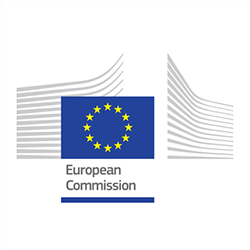Indigenous People’s Traditional Knowledge Must Be Preserved, Valued Globally, Speakers Stress as Permanent Forum Opens Annual Session
Traditional knowledge is at the core of indigenous identity, culture, languages, heritage and livelihoods, and its transmission from one generation to the next must be protected, preserved and encouraged, speakers in the Permanent Forum on Indigenous Issues stressed today, as they opened its eighteenth session.
The special theme of this year’s forum “Indigenous Peoples’ Traditional Knowledge: Generation, transmission and protection” is an opportunity to share innovations and practices developed in indigenous communities over centuries and millennia, Permanent Forum Chair Anne Nuorgam said.
“We need to ensure that our educational practices, languages, environmental conservation and management is acknowledged and respected globally, not only by Governments, but by all peoples,” she emphasized.
Traditional knowledge is transmitted between generations through stories, songs, dances, carvings, paintings and performances. However, global histories of colonialism, exploitation and dispossession continue to undermine and undervalue these aspects. In many countries, indigenous children and youth are not taught in their native languages. Calling for financial and technical support from Member States and the United Nations, she encouraged “all of us make sure our children and our youth are connected to their indigenous community and their culture, which is inextricably linked to their lands, territories and natural resources.”
María Fernanda Espinosa (Ecuador), General Assembly President, stressed that traditional knowledge occupies a pivotal place in the range of actions needed to mitigate climate change. Transferring this information across generations is vital, as is harnessing the potential of youth and women. Highlighting the importance of preserving languages, she pointed out that knowledge accumulated over thousands of years on medicine, meteorology, agriculture and other areas is at risk of forever disappearing. In preparing for the great challenges ahead, she said efforts must include fostering a better understanding of traditional knowledge and finding ways to strengthen indigenous peoples’ voices within the United Nations.
Valentin Rybakov (Belarus), Vice-President of the Economic and Social Council, said the Forum’s 2019 theme is timely considering the vast role of indigenous knowledge in sustainable development. However, misconceptions often categorize traditional activities as uninformed and damaging to the environment when, in fact, indigenous peoples’ knowledge of their lands includes a vast array of successful practices. He called on Member States to continue to collaborate with indigenous peoples in implementing the Goals and in reporting for voluntary national reviews.
In the afternoon, the Forum held a discussion on preserving indigenous languages, with speakers noting the importance of the General Assembly’s decision to proclaim 2019 the International Year of Indigenous Languages. Member States shared their work towards that end while representatives of indigenous groups pointed to challenges they face in trying to access education in their mother tongues.

Add comment